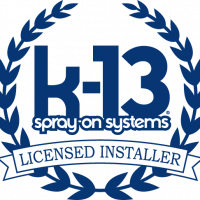The fall is one of the busiest times of year for insulation contractors. We tend to get lots of calls from homeowners who want to get their insulation jobs done before winter hits, so they can keep their home temperatures better regulated without having to worry about heat and energy loss during the cold weather.
However, many homeowners do not have much knowledge about insulation in general, and what they should be looking for when purchasing and installing it. With this in mind, here are a few of the most important things every homeowner should know about insulation in Petaluma, CA.
Insulation does not prevent airflow leakage
There are some frequent misunderstandings about what insulation actually does. Many people assume that because insulation is installed in areas of the home where air tends to leak out, it blocks these leaks. The truth is that insulation really doesn’t do much of anything to prevent airflow leakage. Instead, it is meant to slow heat transfer.
Think of insulation as a tool that turns your house into a thermos. It keeps your home warm in the winter and cool in the summer, decreasing the amount of energy you have to expend to regulate those temperatures. Air can still get through the insulation, but the temperature transfer slows significantly.
You don’t always need to use vapor barriers
Vapor barriers are thin polyethylene sheets (or other materials, in some circumstances) that are designed to control how much water vapor gets into an attic or crawl space. Despite what most people think, they’re not always necessary. They’ll be helpful in particularly humid climates or those that see big temperature swings, but relatively dry climates that don’t see extreme temperature shifts probably can get by without.
You need to seal up your home before adding insulation
Remember how we said insulation doesn’t prevent airflow leakage? Well, that’s the job of sealants. Air sealing is a crucial process in preventing these leaks from occurring. You should hire a professional to go through some sealing processes in the attic and basement, as these are areas of your home that are most prone to air leakage. Sealing up walls in an existing home isn’t always practical, but there are still some areas you can seal, such as gaps between the foundation and siding, as well as corner joints and other exterior gaps.
You measure efficiency of insulation with R-value
One of the most important factors to consider when purchasing and installing insulation is its R-value—the unit of measurement for thermal resistance. This tells you how effective the material is at slowing down heat transfer, which is really the entire point of adding insulation in the first place. Just because a material is thicker than another material does not mean it automatically has a higher R-value—there are some materials that are simply better at retaining heat than others. Your area might have guidelines for the kinds of R-values you should be looking for in your insulation.
To learn more about insulation in Petaluma, CA, contact Ace Insulation Inc. today.


